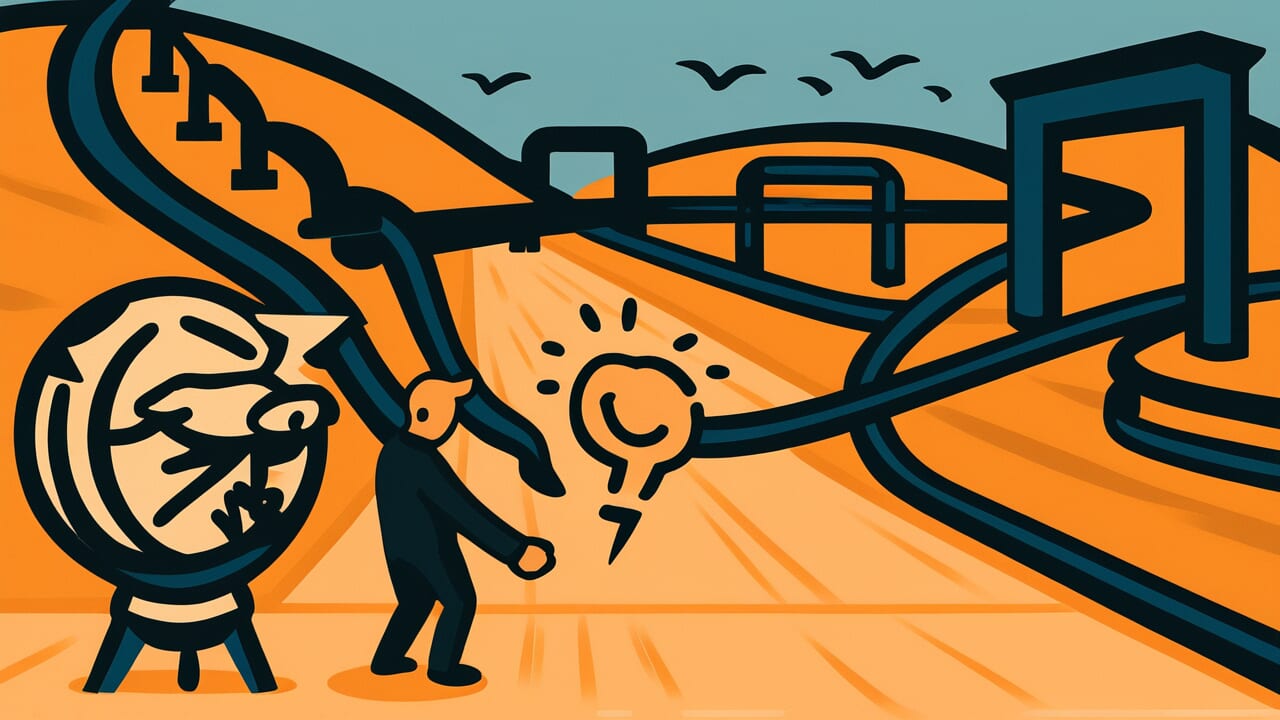How to Read “everything happens for a reason”
Everything happens for a reason
[EV-ree-thing HAP-ens for a REE-zun]
All words are common and easy to pronounce.
Meaning of “everything happens for a reason”
Simply put, this proverb means that all events in life occur with purpose rather than by random chance.
The basic meaning suggests that behind every experience lies some greater plan or intention. When people say everything happens for a reason, they believe life events connect in meaningful ways. This idea comforts many during difficult times. It suggests that even painful experiences serve some larger purpose.
We use this saying today when facing unexpected challenges or changes. Someone loses a job and later finds a better one. A missed flight leads to meeting someone important. People often share this wisdom during breakups, illness, or disappointment. It helps explain why bad things happen to good people.
What’s interesting about this wisdom is how it changes our relationship with uncertainty. Instead of seeing life as chaotic, it frames experiences as purposeful. Many people find this perspective reduces anxiety about the unknown. It suggests that even when we can’t see the bigger picture, one exists.
Origin and Etymology
The exact origin of this specific phrase is unknown, though the concept appears throughout human history.
Similar ideas existed in ancient philosophy and religious traditions for thousands of years. The notion that events follow divine or cosmic order appeared in many early belief systems. People needed ways to understand suffering and unexpected changes. This type of thinking helped communities make sense of difficult experiences.
The modern English phrase became popular during the 20th century in self-help and spiritual movements. It spread through books, speeches, and personal conversations about overcoming hardship. The saying gained strength during times of social upheaval and personal crisis. Today it appears frequently in social media, greeting cards, and casual conversation.
Interesting Facts
The word “reason” comes from Latin “ratio,” meaning calculation or explanation. This connects to the idea that life follows some logical pattern. The phrase uses simple, everyday words that make complex philosophical ideas accessible to everyone.
Usage Examples
- Mother to daughter: “I know you’re upset about not getting into your first-choice college, but everything happens for a reason.”
- Friend to coworker: “Don’t beat yourself up about missing that job interview due to traffic – everything happens for a reason.”
Universal Wisdom
This proverb addresses one of humanity’s deepest psychological needs: the desire to find meaning in chaos. Our brains evolved to detect patterns and create explanations for events around us. Random suffering feels unbearable because it suggests we have no control or understanding. The belief that everything happens for a reason transforms confusion into purpose.
This wisdom reveals a fundamental tension in human nature between accepting reality and needing hope. When faced with loss or disappointment, people must choose between seeing events as meaningless or meaningful. The meaningless view can lead to despair and helplessness. The meaningful view provides emotional strength to continue forward. Our ancestors who maintained hope during hardship were more likely to survive and rebuild.
The persistence of this belief across cultures shows how essential meaning-making is to human survival. People who find purpose in their struggles often recover faster from trauma and setbacks. They maintain relationships better and contribute more to their communities. This isn’t about whether the belief is literally true. It’s about how the belief shapes behavior and resilience. The search for reason behind events drives people to learn, grow, and help others facing similar challenges.
When AI Hears This
Humans work backwards through their memories like detectives solving crimes. They start with what happened and dig for clues. Then they build stories that make everything seem planned. This mental digging happens so fast people don’t notice they’re doing it. They find connections between random events and call it fate.
This backward storytelling serves a hidden purpose beyond just comfort. It helps people feel like experts at predicting life. When bad things make sense, people believe they can avoid future problems. The brain tricks itself into thinking it found real patterns. This false confidence actually helps people take risks and keep trying.
The most amazing part is how this backward reasoning creates forward courage. People who believe in cosmic plans take bigger chances in life. They recover from setbacks faster because everything “has meaning.” This magical thinking might seem silly, but it works. Humans accidentally discovered that fake certainty produces real results.
Lessons for Today
Living with this wisdom requires balancing hope with reality. The belief that everything happens for a reason can provide comfort during difficult times. It encourages people to look for lessons and growth opportunities in their experiences. However, this perspective works best when it empowers action rather than passive waiting. The most helpful approach involves staying open to possibilities while taking responsibility for responses.
In relationships, this wisdom affects how people support each other through challenges. Some find great comfort in hearing that their struggles have purpose. Others feel dismissed when their pain gets explained away as part of a plan. The key lies in offering this perspective gently and only when appropriate. Sometimes people need acknowledgment of their suffering before they can consider its potential meaning.
For communities, this belief can inspire collective resilience during crises. Groups that find purpose in their shared struggles often emerge stronger and more united. They channel their experiences into helping others and preventing similar problems. The wisdom works best when it motivates positive change rather than resignation. Whether or not everything truly happens for a reason, believing it can help people create meaning from their experiences and build better futures.



Comments